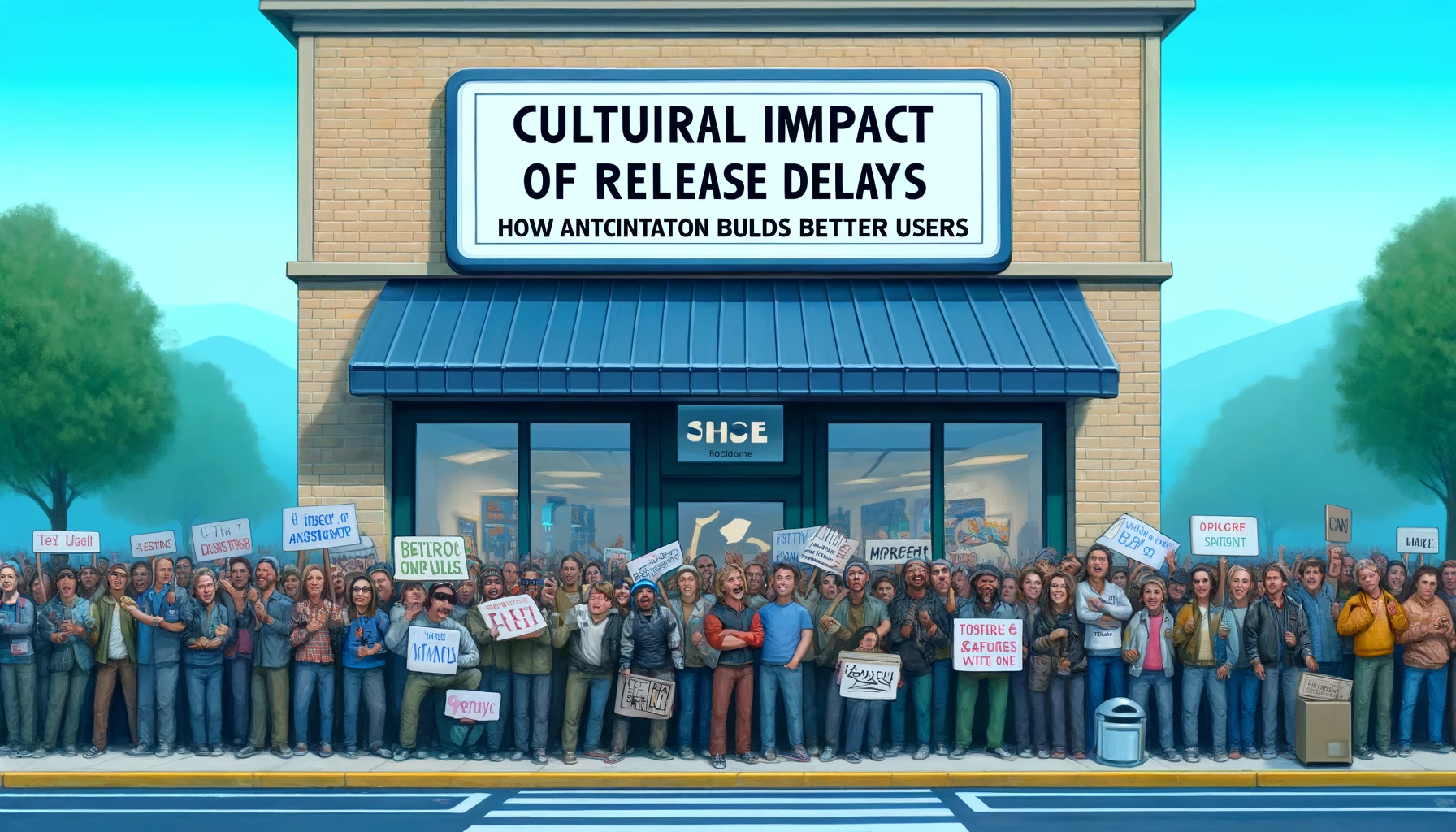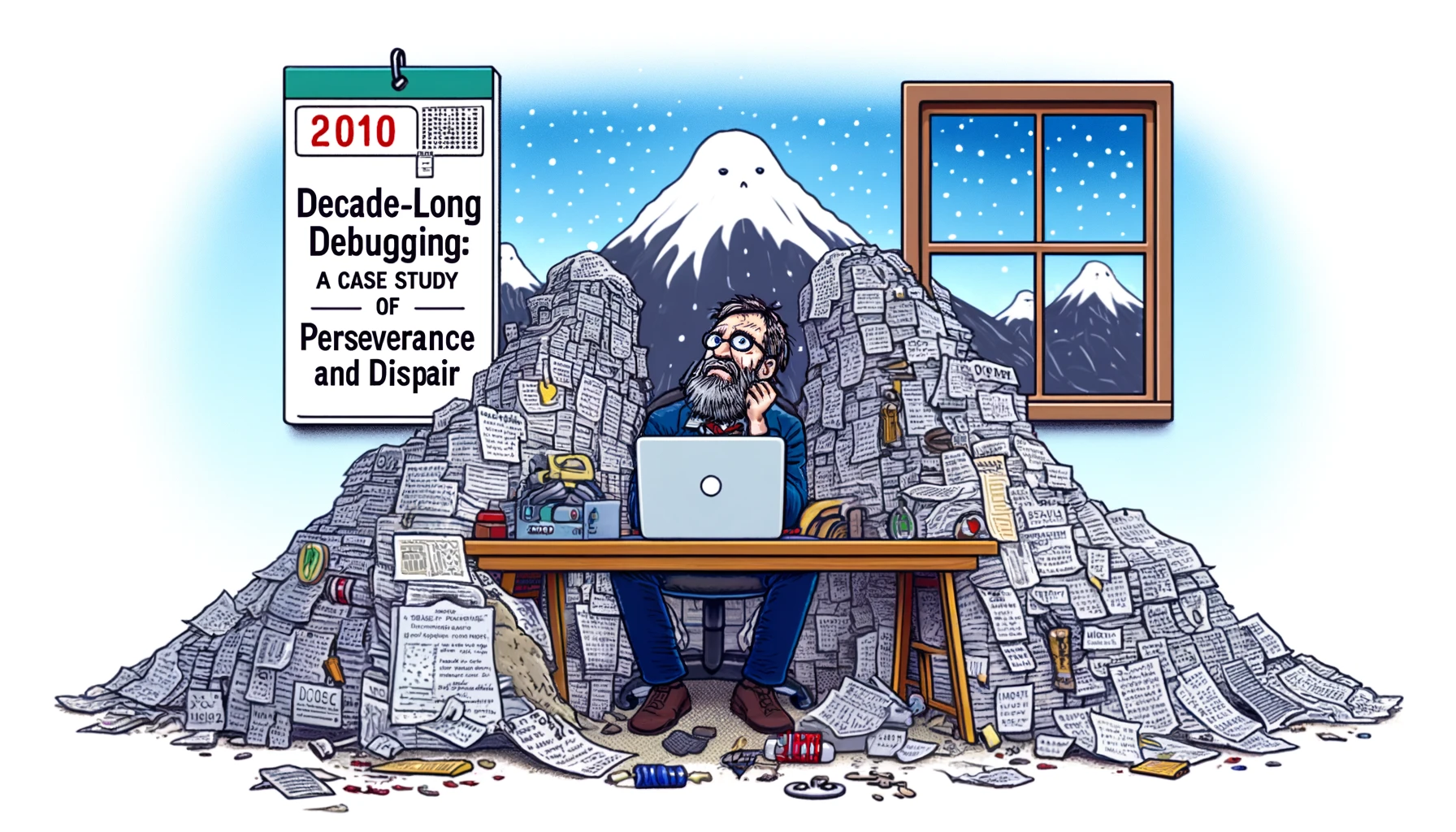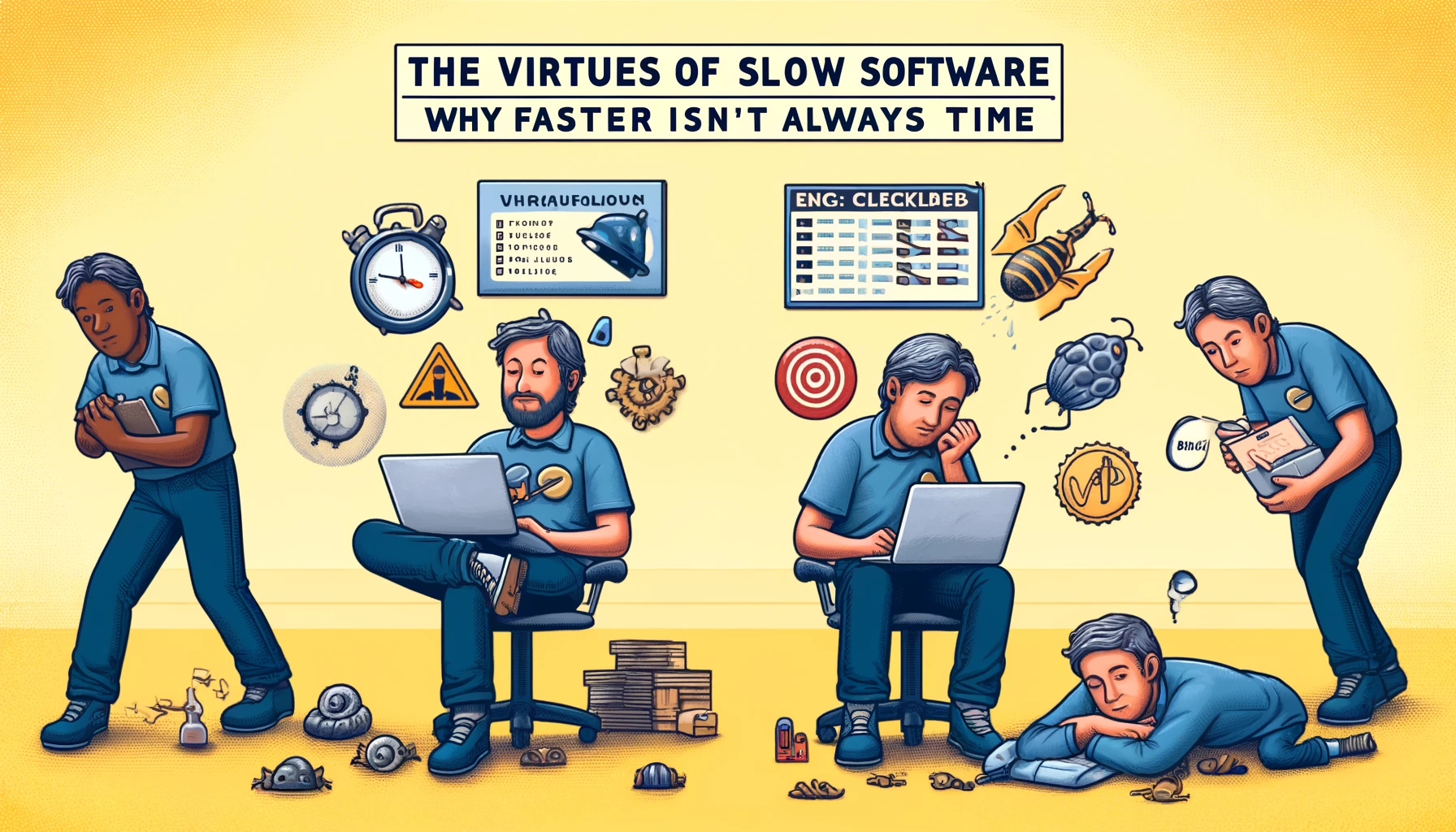Research Papers
Explore our Research Papers, where every theory is so thoroughly reviewed it becomes historical artifact. Delve into studies that prove conclusively that newer isn’t always better—especially if it works.
-

Backward Compatibility Forever: The Cost of Never Moving On
This research paper explores the long-term implications and hidden costs associated with maintaining backward compatibility in software development. By examining case studies, industry practices, and theoretical frameworks, this paper highlights how the insistence on supporting legacy systems can hinder innovation, increase technical debt, and lead to significant financial and operational burdens. The objective is to…
-

The Economics of Obsolete Technologies: Investing in the Past for a Profitable Future
This research paper explores the economic rationale and potential profitability of investing in obsolete technologies. By analyzing case studies, industry trends, and economic theories, this paper highlights how certain businesses have leveraged outdated systems to maintain competitive advantages, reduce costs, and ensure reliability. It examines the paradox of how investing in the past can sometimes…
-

Cultural Impact of Release Delays: How Anticipation Builds Better Users
Exploring how delayed software releases prepare users psychologically for disappointment, enhancing their eventual satisfaction.
-

The Myth of Multitasking: How Doing Less Achieves More
This research paper examines the widely held belief in multitasking and its effectiveness in enhancing productivity. By reviewing psychological theories, neuroscientific findings, and case studies, this paper debunks the myth of multitasking and demonstrates how focusing on fewer tasks can lead to greater efficiency, improved quality of work, and enhanced well-being. It explores the cognitive…
-

Reviving Ancient Code: Strategies for Working with Software Older Than Your Developers
This research paper delves into the challenges and strategies associated with maintaining and modernizing legacy software systems that are older than the developers tasked with managing them. By examining best practices, case studies, and technical methodologies, this paper provides a comprehensive guide to effectively working with ancient codebases. It highlights the importance of understanding historical…
-

Decade-Long Debugging: A Case Study of Perseverance and Despair
This research paper presents a comprehensive case study on the decade-long effort to debug a complex software system. It examines the challenges, strategies, and emotional toll associated with prolonged debugging processes. By analyzing this extended endeavor, the paper aims to highlight the perseverance required and the often-overlooked aspects of software maintenance that can lead to…
-

The Virtues of Slow Software: Why Faster Isn’t Always Better
This research paper explores the benefits of slow software development practices, challenging the pervasive notion that faster is always better. By examining case studies, industry practices, and psychological theories, this paper highlights how slower development cycles can lead to higher quality products, better user experiences, and more sustainable business practices. It delves into the virtues…
-

Commitment to Inefficiency: How Over-Engineering Can Lead to Job Security
This research paper explores the phenomenon of over-engineering in software development and its implications for job security. By examining case studies, industry practices, and theoretical frameworks, this paper highlights how intentionally complex and inefficient designs can create a dependency on the original developers. It delves into the strategies used to maintain job security through over-engineering…
-

Perpetual Prototypes: The Benefits of Never Finalizing Design
This research paper explores the concept of perpetual prototypes in software development and design, highlighting the benefits of never finalizing a design. By examining case studies, industry practices, and theoretical frameworks, this paper argues that continuous iteration and flexibility can lead to more innovative and user-centered products. It delves into the advantages of maintaining a…
-

The Paradox of Planning: More Plans Lead to Less Progress
This research paper investigates the paradox of planning in project management and software development, where extensive planning efforts can lead to reduced progress and productivity. By examining case studies, industry practices, and psychological theories, this paper explores how overemphasis on planning can hinder execution and innovation. It highlights the importance of balancing planning with action…
